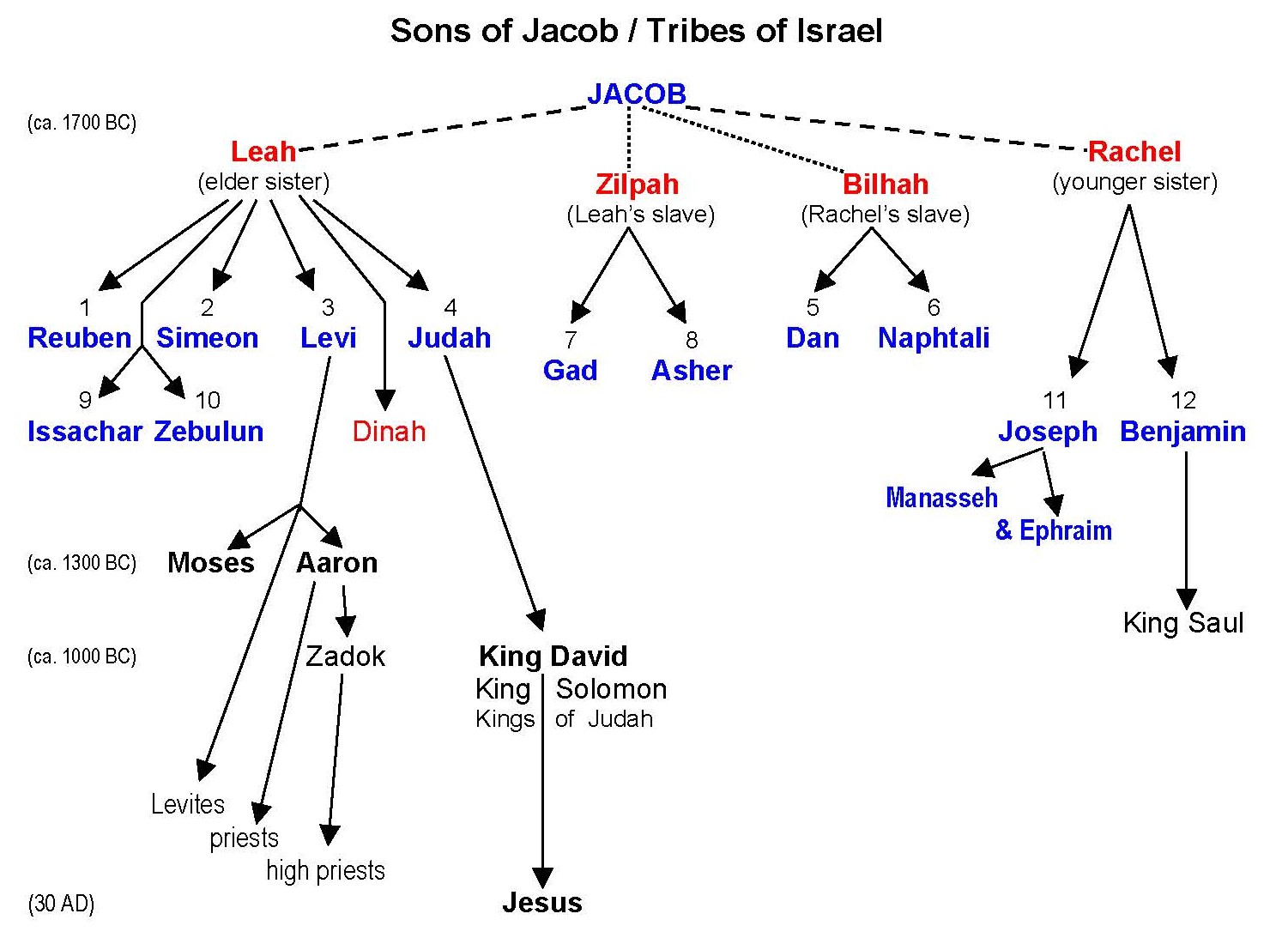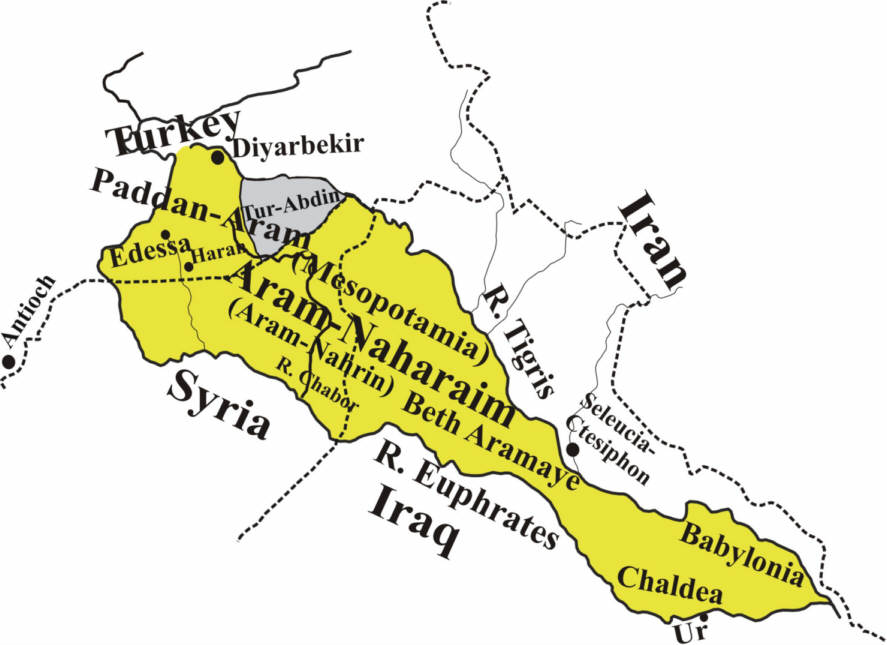The Hebrew Exodus was in 1495 B.C.E./B.C.
Reader comment on item: American Intifada
in response to reader comment: So when was the Israelite exodus from Egypt?
in response to reader comment: So when was the Israelite exodus from Egypt?
Submitted by Lujack Skylark (United States), Apr 18, 2012 at 19:45
The Hebrew Exodus was in 1495 B.C.E./B.C. Solomon's real reign was 1019-979 B.C. (1Kings 11:42) & (1 Kings 6:1) 1015 B.C. + 480 years = 1495 B.C. the Exodus 480 yrs. from Solomon's 4th year.Rehoboam reign 979-962 B.C. (1 Kings 14:21) Abijam 962-959 B.C. (1 Kings 15:2) Asa 959-918 B.C. (1 Kings 15:10) Jehoshaphat 918-893 B.C. (1 Kings 22:42) Jehoram 893-885 B.C (2 Kings 8:17) Ahaziah 885-884 B.C. (2 Kings 8:26) Athaliah 884-878 B.C. (2 Kings 11:1-3) Jehoash 878-838 B.C. (2 KIngs 12:1) Amaziah 838-809 B.C. (2 Kings 14:2) Uzziah 809-757 B.C. (2 Kings 15:2)
Jotham 757-741 B.C. (2 Kings 15:33) Ahaz 741-725 B.C. (2 Kings 16:2) Hezekiah 725-696 B.C. (2 Kings 18:2) Manasseh 696-641 B.C. (2 Kings 21:1) Amon 641-639 B.C. (2 KIngs 21:19) Josiah 639-608 B.C. (2 Kings 22:1) Jehoahaz 608 B.C. (2 Kings 23:31) Jehoiakim 608-597 B.C. (2 Kings 23:36) Jehoiachin 597 B.C. (2 Kings 24:8) & Zedekiah 597-586 B.C. (2 Kings 24:18) The vast majority of historians state Solomon's temple was destroyed in 586 B.C.
Egyptian chronology Thutmose III does not die in 1434 B.C. The Exodus king dies in 1495 B.C. some 521 years before Rehoboam's 5th year in 974 B.C. (1 Kings 14:25) Shishak dies in Rehoboam's 5th year 974 B.C. a few months after attacking Jerusalem.
Reign of Egyptian kings given in solo years. Example Amenhotep II is listed as 26 years. He reigns 24 years solo.
Amenhotep II 1495-1471 B.C. Thutmose IV 1471-1462 B.C. Amenhotep III 1462-1424 B.C. Akenaton 1424-1407 B.C. Semenkare 1407-1406 B.C. Tut 1406-1396 B.C. Ay 1396-1392 B.C. Horemheb 1392-1361 B.C. Ramses I 1361-1360 B.C. Seti I 1360-1347 B.C. Ramses II 1347-1280 B.C. Merneptah I 1280-1268 B.C. Amenmesses 1268-1263 B.C. Seti II 1263-1258 B.C. Merneptah II 1258-1251 B.C. Tausert 1251-1249 B.C. Irsu 1249-1247 B.C. Setnakht 1247-1245 B.C. Ramses III 1245-1213 B.C.
Ramses IV 1213-1207 B.C. Ramses V 1207-1203 B.C. Ramses VI 1203-1193 B.C. Ramses VII 1193-1192 B.C. Ramses VIII 1192-1185 B.C. Ramses IX 1185-1166 B.C. Ramses X 1166-1157 B.C. Ramses XI 1157-1130 B.C. Smendes 1130-1103 B.C. Neferkhres 1103-1099 B.C. Psusennes I 1099-1049 B.C. Amenmope 1049-1040 B.C. Osokhor 1040-1034 B.C. Siamon 1034-1014 B.C. Psusennes II 1014-995 B.C. & Shishak 995-974 B.C.
The Egyptian chronology from the Exodus to Rehoboam's 5th year (1 Kings 14:25) is a perfect match! The pharoah before Amenhotep II was Thutmose III the Exodus pharaoh.
How the Book of Judges fits into 1 Kings 6:1 480 years from Exodus to Solomon's 4th year.
If we say in the 8th year of Othniel reign as judge Cushan-Rishathaim is defeated and the 18th year Ehud was judge Moab was defeated we are on our way to match Judges with 1 KIngs 6:1)
1495 B.C. was the Exodus. 1455 B.C. Joshua invades Canaan. 1418-1378 B.C. Othniel reigns as judge. Othniel defeats Cushan-Rishathaim in his eighth year of reign in 1410 B.C. 1378-1298 B.C. Ehud reigns as judge. Ehud's 18th year he slays Moabite king Eglon. 1298-1258 B.C. Deborah & Barak reign as judges over Israel. Deborah and Barak's 20th year 1278 B.C. they defeat the Canaanite Jabin. 1258-1218 B.C. Gideon reigns as judge. Gideon's 7th year 1251 B.C. Gideon defeats the children of the East-the Syrians. 1251-1249 B.C. Egyptian queen Tausert has an affair with her Syrian butler named Bay.
1218-1215 B.C. Abimelech slays his 70 half brothers declaring himself an Israeli king. 1245-1213 B.C. Ramses III at the end of his reign is nearly slain by members in his harem. Power plays in Israel and Egypt.. 1215-1192 B.C. judge Tola reigns. 1192-1170 B.C. Judge Jair reigns. 1170-1152 B.C. Ammon oppresses Israel. Who are the Israel judges during this oppression? 1170-1163 B.C. Judge Ibson 1163-1153 B.C. Elon reigned as judge. 1153-1147 B.C. Jephthah reigned as judge defeating Ammon in 1152 B.C. some 300 years while Israel 1452-1152 B.C. lived in Heshbon and her towns, Aroer and her towns and along the coasts of Arnon. Judges 11:26
1147-1139 B.C. Abdon reigns as judge. 1139-1099 B.C. Philistine oppression. Who reigns as judge? 1139-1119 B.C. Samson reigns as judge. 1119-1099 B.C. The Ark of the Covenant is taken to Kirjath-jearim where it rested for 20 years. (1 Samuel 7:2)
1099-1059 B.C. Saul reigns as king of Israel 1059-1019 B.C. David reigns as king of Israel 1019-979 B.C. Solomon reigns as king of Israel. Solomon's 4th year is 1015 B.C. some 480 years after the Exodus.
We have the updated chronology from the Exodus to Solomon's temple destruction with no missing links. We also have the pharoah of the Exodus to Shishak with no missing links! Bible chronology is a perfect match with Egyptian history!


